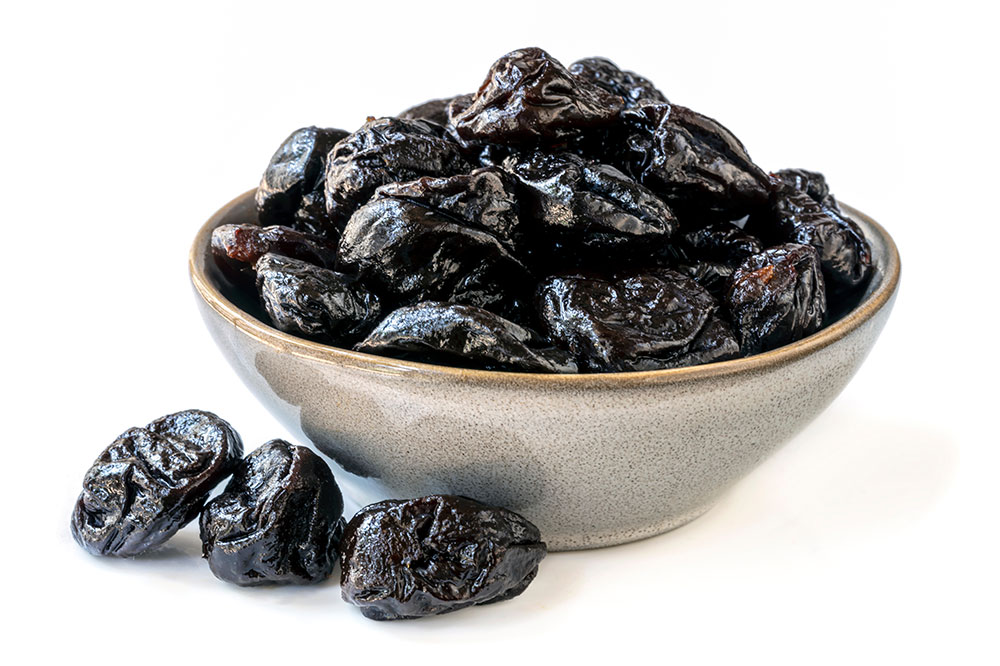Foods to eat and avoid to relieve constipation

Constipation is characterized by a difficulty in passing stools and decreased frequency of bowel movements. The causes of this digestive disorder include eating low-soluble fiber meals, being dehydrated, and living a sedentary lifestyle. It is one of the most common gastrointestinal problems faced in the country, affecting close to 2.5 million people. That being said, most mild cases of constipation can be controlled by following a healthy lifestyle and by eating and avoiding certain foods.
Here is a list of common foods to eat and avoid during constipation:
Foods to eat
Prunes
Prunes are an ideal choice when it comes to tackling constipation at home. They are packed with fiber, which helps ease as well as speed up bowel movements. Studies have indicated that prunes increase the frequency of bowel movements and improve the consistency of the stool.
Apples
Apples are one of the best foods to eat for constipation. That’s because they are full of fiber, especially insoluble fiber. Eating apples can increase water content in the colon, soften the stool, and accelerate stool movement through the intestines. For maximum constipation relief, it is advisable to eat raw and whole apples.
Oats
Oats are a type of whole grain packed with soluble fiber. This type of fiber allows more water to remain in the stool, making it softer, larger, and easier to pass. Besides, health experts recommend replacing refined grains like white bread and white rice with whole grains like oats, brown rice, and quinoa to relieve constipation.
Chia seeds
Chia seeds are exceptionally rich in fiber. They contain around 85% insoluble fiber and 15% soluble fiber. These seeds can absorb up to 12 times weight in water, adding bulk and weight to stool. Plus, they can help soften the stools and promote their movement, alleviating constipation.
Foods to avoid
Dairy products
When constipated, steer clear of milk and other dairy products, especially full-fat dairy. Many people have reported that dairy worsens their constipation. In fact, it is one of the most common causes of constipation among young children. This may be due to high-fat and low-fiber content in milk and dairy products, like cheese, butter, and ice cream.
Red meat
Red meat may worsen constipation for various reasons. It does not contain any fiber. Plus, it has high levels of saturated fat, which the body takes longer to digest, exacerbating constipation. Plus, this kind of high-fat meat is likely to indirectly reduce your total daily fiber intake, as you may replace it with higher-fiber options in your meals.
Fried foods
Fried foods are among the worst foods to have during constipation. They are greasy, high in trans fats, and take a long time to digest, contributing to the hardening of stools. So, it is best to avoid all fried foods, like French fries, fried chicken, onion rings, doughnuts, and potato chips.
Certain medications can also help tackle constipation. Some of these are:
FiberCon
FiberCon is an oral medication used to treat constipation by increasing bulk in stool. This, in turn, leads to easy movement of the intestines. Common side effects include cramping and gas.
Correctol
Correctol is a stimulant that works by improving intestine movement in order to relieve constipation. Some side effects of this medicine are stomach pain and cramping.
MOVANTIK
MOVANTIK is prescribed to treat constipation that occurs as a side effect of certain opioids. It works by blocking opioids from attaching to “mu-receptors,” thus enabling bowel movements. The side effects can be opioid withdrawal, stomach pain, and diarrhea.

